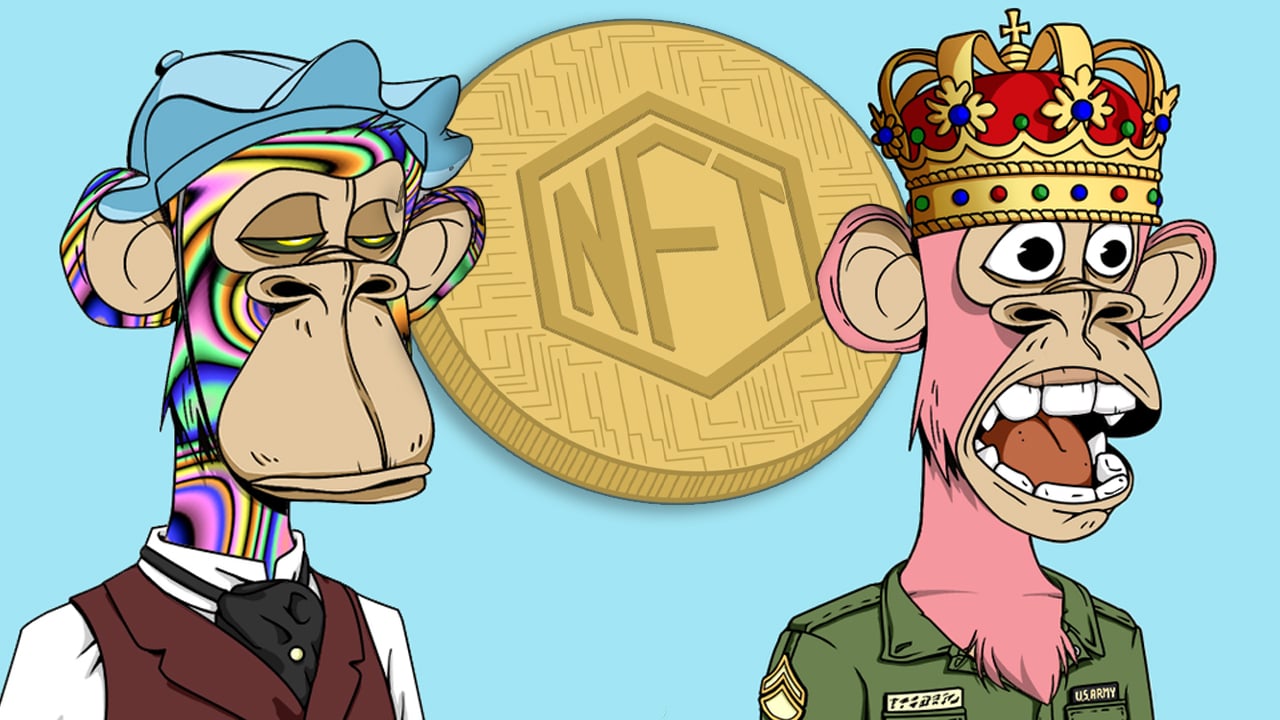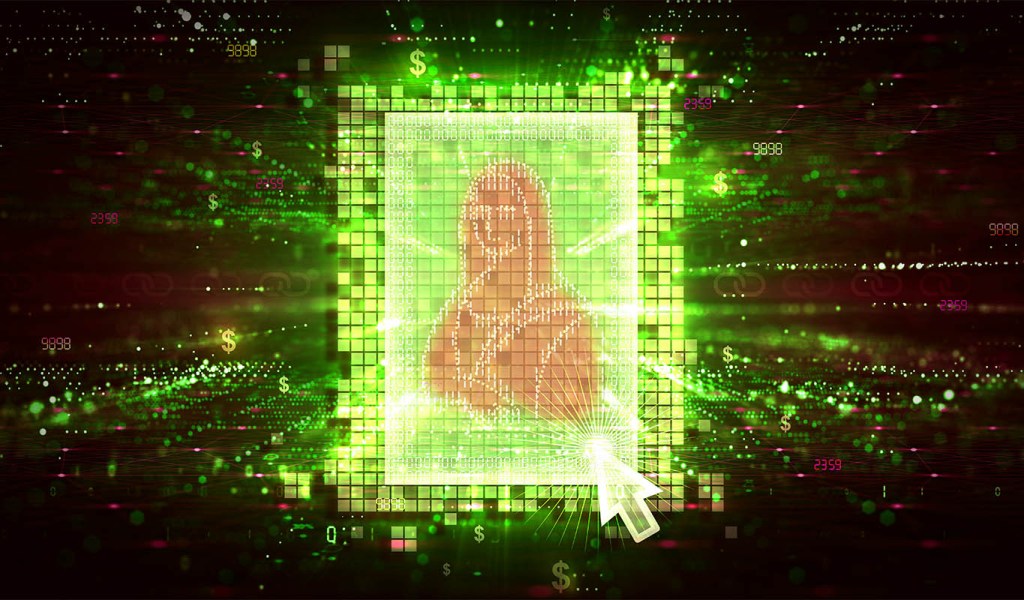
The console's creators say it will be compatible with eight blockchains and have its own digital wallet, token, and marketplace, with a prototype coming in “a few months.”
Polium, a company that markets itself as “building the products and infrastructure for Web3 gaming,” has said it's launching a gaming console that will support multiple blockchains and nonfungible tokens (NFTs).
The “Polium One” console announced on July 3 is slated for an initial Q3 2024 release and will support the Ethereum (ETH), Solana (SOL), Polygon (MATIC), BNB Chain (BNB), ImmutableX, Harmony, EOS, and WAX blockchains.
We are introducing the Polium One, A multi-chain console for Web 3 Gaming. #Web3OnConsole pic.twitter.com/tkRaP2O13A
— Polium (@Polium__) July 2, 2022
Currently, the only specifications listed for the console are that it will support a 4K Ultra HD resolution at 120 frames per second. Polium says its community will help them build the console’s hardware and software and states it will have a functional prototype in “a few months.”
According to Polium, the console will feature its own multichain cryptocurrency wallet, and the controller will have a wallet button for users to make trades more efficiently. Security and verification of transactions from the console will be enabled via a fingerprint scanner on the controller.
The console's price is unknown, but Polium does plan to mint a “Polium Pass” NFT, which will allow holders to claim a console on the initial launch day. Pass holders will receive another NFT, which in the future can be staked for a “PLAY” token, the console's native token for transacting on its marketplace app.
Polium plans on releasing 10,000 consoles to Polium Pass holders and partners on the Q3 2024 initial launch, with more units manufactured for the public in Q3 2025. It has set a goal of selling over 1 million units.
The company has already received criticism for its logo looking similar to another popular console, the Nintendo GameCube. Polium said it didn’t copy the logo and is already creating a new logo “that is original.”
Man logo looks kinda familiar... pic.twitter.com/bruj4gX35D
— ben shambrook (@shambrookben) July 4, 2022
China’s NFT industry players and the country’s largest technology firms have signed an agreement to check the identity of users using digital collectible trading platforms, according to a report on July 4 from the South China Morning Post.
A so-called “self-discipline initiative” document was signed by companies with a stake in China’s NFT market, such as JD.com, Tencent Holdings, Baidu, and digital payments platform Ant Group, an affiliate of Alibaba Group.
The document was published on June 30 by the China Cultural Industry Association and, while not legally binding, calls on the firms to “require real-name authentication of those who issue, sell and buy” NFTs, and “only support legal tender as the denomination and settlement currency.”
The initiative also seeks for the companies to promise not to create secondary marketplaces for NFTs to combat trading speculation.
The popularity of NFTs in China is on the rise, and digital collectable platforms have grown 5X in just four months from February to mid-June 2022 despite multiple warnings from the government.
A patent filed by Nike Inc. on June 30 with the United States Patent and Trademark Office (USPTO) shows the fitness clothier is interested in a “video game integration” of NFTs.
As per the filing, Nike seeks to patent a method where a “virtual object” will display in games, where that object is a “virtual shoe, article of apparel, headgear, avatar, or pet.” Other language in the filing suggests Nike plans to sell the physical shoes and clothes represented within the NFTs.
Related: NFT hype evidently dead as daily sales in June 2022 dip to one-year lows
The reasoning presented in the filing suggests Nike is concerned with counterfeit digital collectibles and says there “exists a need for a retailer to more directly influence and control the nature and ultimate supply of digital objects within this virtual market.”
It also reasons an opportunity exists for it to capitalize and engage with video game players as most games feature customizable characters, which could make them “more engaged with a brand in the physical world.”
The second-largest sale of an Ethereum Name Service (ENS) domain not only in U.S. dollars but also in Ethereum happened on July 3 when the domain “000.eth” sold for 300 ETH, roughly $320,000. The highest sale of an ENS domain was for “paradigm.eth” in October 2021, which fetched 420 ETH, around $1.5 million at the time.
Social media platform Facebook will add support for NFTs, and a “digital collectibles” tab will appear on the pages of selected creators in the U.S., with a feature to cross-post between Instagram and Facebook rolling out eventually.

Hackers had access to multiple official social media accounts of the British Army for nearly four hours, when they posted crypto phishing links and scams.
The British Army’s official Twitter, Facebook, and YouTube accounts were breached on July 3 for almost four hours, with scammers promoting rip-off non-fungible token (NFT) collections and cryptocurrency scams.
Just after 2PM ET on July 3, the United Kingdom Ministry of Defence (MOD) Press Office tweeted it was aware the Army’s social media accounts were compromised and had begun an investigation.
Nearly four hours later, close to 5:45PM ET, the Office provided an update that the account breaches were resolved. The British Army's official Twitter account also apologized for the posts, saying it would conduct an investigation and “learn from this incident.”
The breach of the Army’s Twitter and YouTube accounts that occurred earlier today has been resolved and an investigation is underway.
— Ministry of Defence Press Office (@DefenceHQPress) July 3, 2022
The Army takes information security extremely seriously and until their investigation is complete it would be inappropriate to comment further.
Screenshots of the British Army’s official Twitter account posted by users show the hackers promoting at least two fraudulent derivatives of “The Possessed” and “BAPESCLAN” NFT collections.
British Army Twitter account @BritishArmy appears to have been hacked pic.twitter.com/41HPtSeln1
— OSINTtechnical (@Osinttechnical) July 3, 2022
One screenshot shows the hackers pinning a tweet to a fake mint of The Possessed NFT collection, likely a phishing link that would drain user funds if their crypto wallet was connected. Tom Watson, one of the collection's creators, warned that the information was fake and asked his followers to report the account.
The @BritishArmy has been compromised and is currently being used to shill NFTs.
— vx-underground (@vxunderground) July 3, 2022
Previous archive of the Twitter profile: https://t.co/dQmlxlY5l8 pic.twitter.com/gifpsOy000
Over on YouTube, the hackers rebranded the account to resemble the Cathie Wood-founded investment firm Ark Invest, posting live stream videos of supposed interviews with Elon Musk and Twitter founder Jack Dorsey which were being watched by thousands of people.
the British Army's YouTube page, still under the control of some crypto scammers, is running 4 consecutive livestreams with approx 19,000 people watching as we speak. would be interesting if any of them who fall for the scam could have grounds to sue the Army pic.twitter.com/oVWrDsXKZ1
— Señor Rules (@wariotifo) July 3, 2022
On the commandeered YouTube channel, the posted videos presented QR codes for viewers to send crypto to, claiming they would receive double back, and promoted other cryptocurrency giveaway scams through QR codes.
It’s unknown at this time who was behind the attack, how they achieved it, and how many people may have fallen victim to the phishing and scam links. All of the links, tweets, and related material from the account breaches have since been deleted by the British Army.
Related: CertiK shares security tips following third BAYC security compromise in six months
As reported by Cointelegraph, as much as $1 billion has been lost to crypto scammers in 2021, with nearly 50% of all crypto-related scams coming from social media platforms. The United States Federal Trade Commission even labeled social media and crypto a “combustible combination for fraud.”
In late May, the Twitter account of NFT artist Beeple was compromised and posted links to a phishing website which netted the attacker over $438,000 in crypto and various NFTs. The links were made to look like a “surprise mint” of a new Beeple NFT collection.
Later in June, a similar “stealth mint” phishing link was posted on the compromised Twitter account of the upcoming Duppies NFT collection, with at least one victim losing 650 Solana (SOL), worth around $18,850 at the time.
 Non-fungible token (NFT) sales have managed to stay consistent this week while the crypto economy saw more losses over the last seven days. The week prior, $152.9 million in NFT sales were recorded across 18 blockchains and during the past week, $154.3 million in sales were executed. While Ethereum saw the most NFT sales this […]
Non-fungible token (NFT) sales have managed to stay consistent this week while the crypto economy saw more losses over the last seven days. The week prior, $152.9 million in NFT sales were recorded across 18 blockchains and during the past week, $154.3 million in sales were executed. While Ethereum saw the most NFT sales this […]
The U.S. Department of Justice (DOJ) is pressing charges against a Solana (SOL) non-fungible token (NFT) developer who allegedly pulled the rug on investors. According to a new press release, the DOJ is charging Vietnamese national Le Anh Tuan with one count of conspiracy to commit wire fraud and one count of conspiracy to commit […]
The post DOJ Announces Charges Against Solana-Based NFT Developer for Alleged Rug Pull Scheme appeared first on The Daily Hodl.
 This week, the rapper Snoop Dogg spoke about the crypto crash in an interview with CNBC on Tuesday and explained that he believes the cryptocurrency economy will bounce back. Snoop said that he feels like the crash “‘weeded’ out all of the people” that were not supposed to be in the space in the first […]
This week, the rapper Snoop Dogg spoke about the crypto crash in an interview with CNBC on Tuesday and explained that he believes the cryptocurrency economy will bounce back. Snoop said that he feels like the crash “‘weeded’ out all of the people” that were not supposed to be in the space in the first […] Cryptoys, an NFT-based startup, announced it has raised $23 million in a Series A funding round led by a16z. The company, which seeks to mix NFTs with the world of gaming and virtual toys, will create what it calls a “cryptoyverse,” in which it will also implement play-to-earn features and issue its own tokens. Cryptoys […]
Cryptoys, an NFT-based startup, announced it has raised $23 million in a Series A funding round led by a16z. The company, which seeks to mix NFTs with the world of gaming and virtual toys, will create what it calls a “cryptoyverse,” in which it will also implement play-to-earn features and issue its own tokens. Cryptoys […] The creators of the popular non-fungible token (NFT) project Bored Ape Yacht Club (BAYC), Yuga Labs, have sued the artist dubbed Ryder Ripps and collaborators for attempting to devalue the BAYC brand. Yuga Lab’s lawsuit claims Ripps and associates trolled the company and started “scamming consumers into purchasing RR/BAYC NFTs by misusing Yuga Labs’ trademarks. […]
The creators of the popular non-fungible token (NFT) project Bored Ape Yacht Club (BAYC), Yuga Labs, have sued the artist dubbed Ryder Ripps and collaborators for attempting to devalue the BAYC brand. Yuga Lab’s lawsuit claims Ripps and associates trolled the company and started “scamming consumers into purchasing RR/BAYC NFTs by misusing Yuga Labs’ trademarks. […]
How will AI be used in the metaverse? Can AI and blockchain work together? A dive into the future of AI aligned with blockchain.
XR felicitates dynamic collaboration in the metaverse, enabling white-collar work in an intimate office environment.
A metaverse driven by AI enables users to take up tasks that are much more fun, engaging and impactful. For instance, in a natural conversation about different topics in various realities, MeetKai's conversational AI can comprehend more sophisticated speech, provide personalized outcomes and quickly respond by remembering user preferences and context.
Furthermore, an XR device provides for data overlay, opening up a string of applications. In a metaverse, this is immensely useful for building or manufacturing use cases. An XR-backed environment creates a feeling of togetherness, a critical component of a closely-knit office atmosphere.
XR is especially efficient when there is a small set of criteria to be met. For instance, when doing something as simple as playing a board game, you may want dim light and particular music. An interactive XR atmosphere can determine what you want and arrange for it. A virtual conference room can be decisively better than the one in real life.
Conversational AI systems in the metaverse resemble human-to-human communication.
Voice assistant AI has found its way to the metaverses of the new era, powering use cases like lifestyle assistance and personalized recommendations. For instance, rather than driving to a travel agency's office or talking to their overburdened customer service, users can hop on the metaverse and take a tour of multiple awe-inspiring locations with the assistance of an AI-powered bot.
An AI concierge in a metaverse is a personified machine that delivers unique recommendations based on the avatar's preferences. Take into account the amount of data available on every person and you know the potential of this use case.
Natural language processing in the metaverse makes it more personal than the real world. Voice AI can interpret avatar requests in a language that is more human and natural while factoring in individual tastes and preferences.
Speech technology has become more contextual and personalized, making the metaverse interface smarter in the process. For instance, Kai, the first AI concierge on Meetkai, has made voice assistance as easy as talking with a friend. Request a recipe for "steak" by saying, "Hey Kai, can you find me a nice recipe?" And you'll receive the most delectable beef steak recipe in the world in seconds.

The amalgamation of AI with XR has led to the phenomenon of mixed reality (MR) metaverse.
To date, human-AI interaction has been usually limited to the B2B world. However, projects are emerging now that showcase AI integration into B2C. Meetkai, for instance, demonstrates how efficient life could be with human-AI integration. Leveraging AI-enabled tech, Meetkai enhances regular real-life experiences like shopping, working in an office and engaging in outdoor activities like hiking, trekking, etc.
While lying in their beds, users can not only try apparel in the metaverse store of their favorite brand and bargain with the sellers live but also have their purchases delivered to their doorsteps. They can also work in their virtual office with a complete set of productivity tools.
Look around and you will find a staggering number of metaverse projects on games, say Roblox, Blocktopia, Nakamoto and so on. This suggests that the arrival of the mixed reality metaverse is an epoch-changing event in the domain of metaverses.
Metaverse technology has been confronting challenges that stemmed from its immense growth potential.
As technologies, the VR and AR of the previous era had their limitations such as a lack of vision of the surroundings and graphical restrictions. Activities on the metaverse are simply not as engaging as those in the real world or even regular online games.
Self-reliance is another aspect where many metaverses were struggling. In the initial phase of the metaverses, there was simply not enough technical sophistication and footfalls to create adequate use cases to keep the economy rolling. Thanks to advancements in VR and AR, and the integration of metaverses with AI, use cases are increasing and subsequently, options for monetization.
Like any new technology, metaverses were also facing adoption issues, though this is gradually changing with projects like Decentraland (MANA), The Sandbox (SAND) and now MeetKai metaverse. On Decentraland, participants can buy and sell virtual real estate while exploring exhilarating games. Sandbox offers a gaming ecosystem that enables users to create, share and monetize gaming assets whereas Meetkai has created a realistic metaverse that is qualitatively better than the real world, thanks to its integration with AI.
The sophisticated integration of XR and AI technologies has resulted in more engaging virtual worlds, resulting in better adoption and subsequently, more revenues for all stakeholders in the ecosystem.
The technologies involved infuse tons of potential use cases in the metaverse, leaving imagination as the only restriction.
XR has created a virtual world that never existed before. Blockchain brings decentralization, resulting in the elimination of the centralized governing authority, transparency and irreversible transactions.
Nonfungible tokens (NFTs), a core component of the metaverse, are a product of the blockchain. All objects in the metaverse — land, vehicles, ships, gift items — are also basically NFTs. Take out NFTs and the metaverse falls crashing.
Artificial intelligence in the metaverse enables you to overcome obstacles like poor interactive quality and create new products such as live virtual conferences. It adds to the intuitive interfaces and predictive capabilities of the metaverse. This not only makes life easier for the avatars but games more dynamic, interactions more engaging and businesses more successful.
AI refers to machines simulating human intelligence processes.
AI is a branch of computer science focused on building smart machines capable of mimicking human intelligence. Algorithms powering AI systems analyze colossal amounts of labeled training data for correlations and patterns, and use these patterns to come up with predictions. AI systems can process data much faster and more accurately than humans.
Applications of AI include smart assistants like Alexa, self-driving cars, conversational bots, Robo advisors, email spam filters, etc. and now, metaverses. As a result, how AI will shape the metaverse has become a regular topic of discussion in tech circles.
A harbinger of the new era of digital connectivity, the metaverse combines blockchain with AI (artificial intelligence), VR (virtual reality) and AR (augmented reality), collectively known as XR (extended reality) experiences.
A metaverse is a 3D virtual world accessed through a VR headset. Users can navigate this world through their eye movements, voice commands and feedback controllers. With the headset, the user can feel the immersive world and see the metaverse in action. People interact with each other via avatars and participate in activities like gaming, shopping and more.
According to a report by Emergen Research, the metaverse market will reach across $800 billion by 2028. Applications of metaverse technology include gaming, education, commerce, government services, socializing and many more.
 Cristiano Ronaldo, one of the world’s top-earning athletes, has entered into a partnership with Binance which gives his supporters a chance to join the footballer’s Web3 community. According to Ronaldo, his partnership with Binance is “going to change the non-fungible token (NFT) game and take football to the next level.” Iconic Piece of Sports History […]
Cristiano Ronaldo, one of the world’s top-earning athletes, has entered into a partnership with Binance which gives his supporters a chance to join the footballer’s Web3 community. According to Ronaldo, his partnership with Binance is “going to change the non-fungible token (NFT) game and take football to the next level.” Iconic Piece of Sports History […]